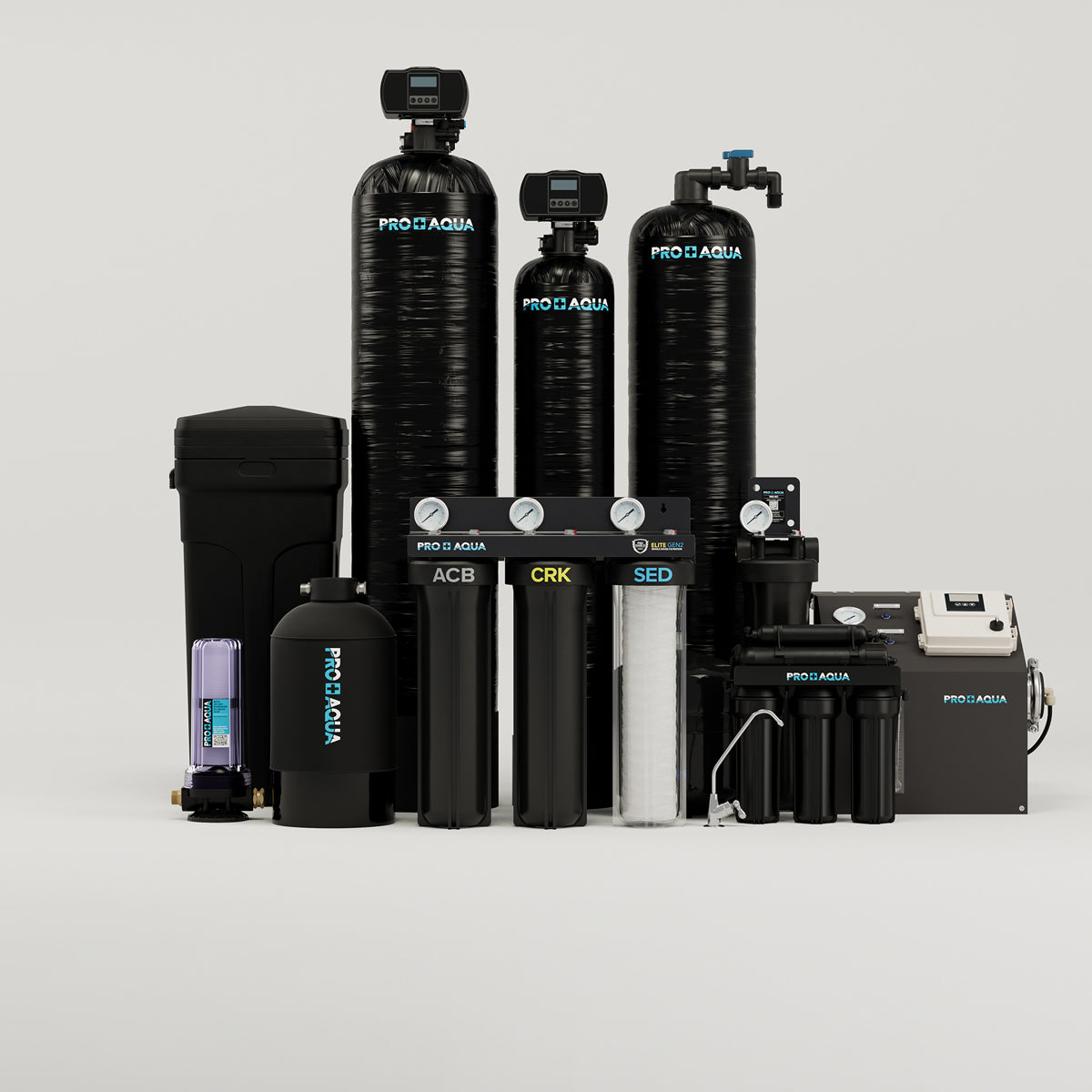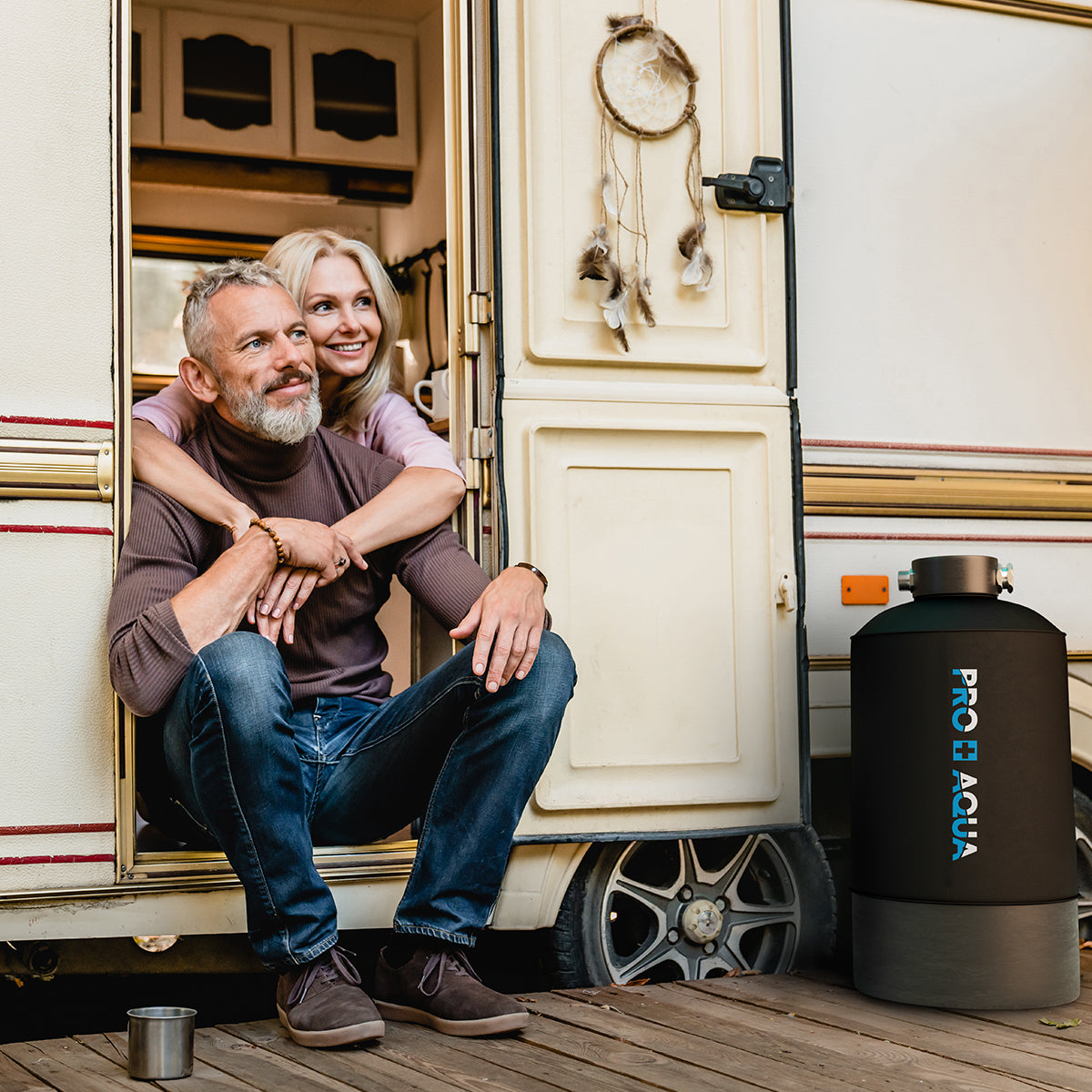Hard water, or water that contains high levels of dissolved minerals, can be found in more than 85% of homes across the United States. Municipal water supplies and water drawn from wells often contain excess levels of dissolved calcium, magnesium carbonates, and sulfates. This naturally occurring phenomenon can result in a buildup of deposits in piping and fixtures, unpleasant odors and flavors of drinking water, stained clothing, and cloudiness or discoloration of dishware and glasses. To reduce these effects, many homeowners choose whole house water softener systems. Another potential solution is that of scale inhibitors. When evaluating water softeners and scale inhibitors, which is the best solution for your family’s needs? In this guide, we will help you find the information you need to make the right decision.
What is a Water Softener?
Water softeners are clever systems that reduce or eliminate dissolved minerals in water by harnessing a chemical process called ion exchange. A whole house water softener is comprised of two tanks – the softener tank and the brine tank -- connected by tubing. Water is piped into the taller softener tank, which is filled with special plastic resin beads. The beads hold a negative electrical charge, which attracts the positively-charged mineral ions in the water. This ion exchange is efficient at removing high levels of dissolved minerals.
Over time, the beads accumulate mineral ions and begin to lose their effectiveness. To recharge them, the second tank in the whole house water softener system comes into play. Controlled by a digital management system, salty water runs into the softener tank, rinsing the mineral deposits from the beads. This water is then drained out of the softener tank through a discharge pipe, and the softener system is ready to use.
What is a Scale Inhibitor?
A scale inhibitor is a relatively simple device that can be found wrapped around the outside or inserted into water pipes. Different inhibitors may be magnetic, electronic, or electrolytic in nature. They are sometimes referred to as “electronic softeners”, but this is misleading. Unlike whole house water softeners, scale inhibitors do not change the chemical composition of the water. They merely inhibit the accumulation of mineral “scale” deposits from forming in the pipes.
International water softness standards state that soft water must contain no more than 50 parts per million (ppm) of dissolved calcium and magnesium carbonates. No scale inhibitor on the market can achieve those low levels. In homes equipped with scale inhibitors, high levels of dissolved minerals may still reach fixtures, leading to the hard water problems discussed above.
How Do I Choose the Right Water System?
Hard water is notorious for several effects, including:
- Ineffective lathering of soaps and shampoos.
- Poor results from washing machines.
- Greater use of bath products and detergents to achieve results.
- Leaving skin and hair feeling dry and itchy.
- Unsightly water rings in the bathtub.
- Streaking and water spotting of faucets, dishware, and vehicles cleaned with hard water.
- Accumulations of minerals in air conditioning and heating systems.
- Accumulations of minerals in dishwashers, washing machines, and appliances that use water, leading to damage or failure.
- The buildup of mineral scale in plumbing.
If you experience any of these signs of hard water, you may wonder which system to choose. If you want clean clothes, soft skin, and sparkling glasses, a whole house water softener is the ideal solution. If all you are concerned about is the mineral buildup in your plumbing, a scale inhibitor may be a more economical choice. It is important to remember that a scale inhibitor will still allow water with high levels of dissolved minerals to pass into your home. For most homeowners, the choice is clear: a whole house water softener to get the very best from the water you and your family use every day.







Leave a comment
This site is protected by hCaptcha and the hCaptcha Privacy Policy and Terms of Service apply.